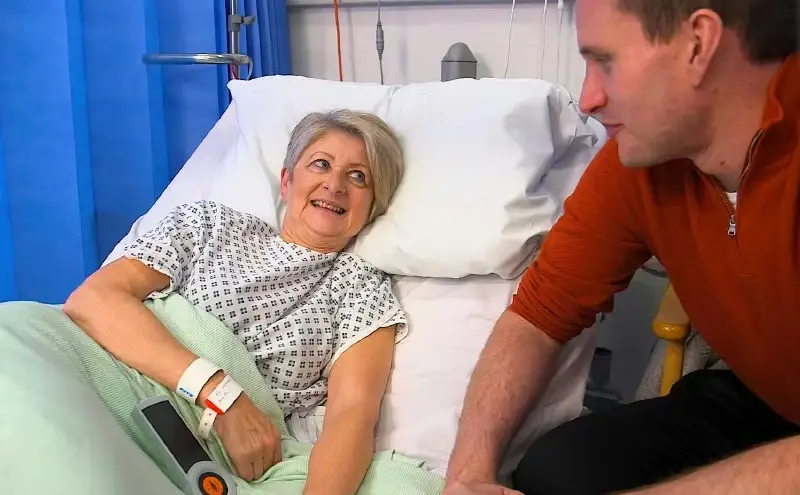This section helps explain what happens after your treatment.
There are two main types of admission:
- A day case patient has their admission, treatment, and discharge all within the same day. These patients will usually remain on the Day Surgery Unit for the duration of their stay.
- An inpatient stays overnight in hospital for one or more nights. These patients will usually be transferred post-operatively to a ward or intensive recovery area.
Our wards
The following section describes the events and environment to expect on our wards. When you arrive on the ward, if you are unsure of anything, please ask a member of staff who will explain the ward routine and show you the location of any communal areas, toilets, or bathrooms.
Single (same) sex accommodation
There is same-sex accommodation throughout both hospital sites. Patients will sleep in bays with other patients of the same sex and also share a single-sex bathroom facility. In some circumstances, it might be appropriate to have patients in mixed-sex accommodation for clinical reasons. This can occur where close monitoring or highly specialised care is required on an intensive care unit, high dependency unit, or recovery.
Moving between beds/wards
While we try to keep patients in the same location throughout their stay, on occasion it is necessary to move from one bed area to another. There are many reasons for this, including:
- Moving from a higher dependency bed to a ward where more appropriate care can be provided.
- The need to move patients to protect same-sex areas.
- Moving patients to prevent and control infections.
If you are asked to move between bed spaces, please be patient, and we will explain the reason.
Visiting hours
Visiting times can be found on our visiting a patient page.
Some wards having slightly different arrangements to allow for protected meal times, so please check the exact times with ward staff.
For infection control reasons, flowers are not permitted in some wards.

Please ask the nurses on your ward if flowers are allowed. Family and friends are welcome to visit you. We ask that you restrict visitors to two people at a time.
Children under the age of 10 are not allowed in some clinical areas. Visits by children may be allowed at the discretion of the nurse in charge, and must be closely supervised for their safety and out of consideration for other patients.

